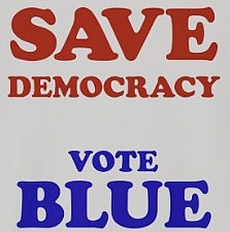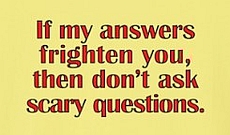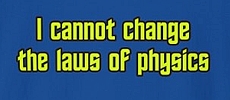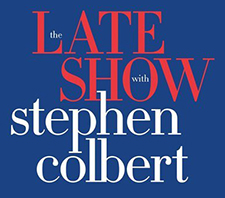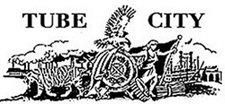(from www.saturday-night-live.com)
By Donald Liebenson
To the general public, he is remembered perhaps dimly, if at all, as Mr. Mike, a recurring character from "Saturday Night Live's" golden era who horrified audiences with his malevolent "least-loved bedtime stories."
But to comedy aficionados, Michael O'Donoghue (January 5, 1940 - November 8, 1994) ranks in the pantheon.
Among those calling him "a god" is Dennis Perrin, a former stand-up comedian and joke writer for TV's "Politically Incorrect." Perrin was bewildered that O'Donoghue, who died of a massive brain hemorrhage on Nov. 8, 1994, might be relegated to the pop culture scrap heap as "a well-known unknown."
So even though he'd never written a book before- and had no agent or publisher- Perrin was determined to write O'Donoghue's biography, to help preserve a singular and subversive voice that helped define a generation's humor.
"The story of '70s humor cannot be told without Michael O'Donoghue," Perrin wrote in "Mr. Mike: The Life and Work of Michael O'Donoghue" (Avon Books). "He was as vital to modern comedy as was Buster Keaton to silent film and Ernie Kovacs to early television."
O'Donoghue had been profiled by Timothy White in Rolling Stone and was featured prominently in "Going Too Far" (Doubleday), Tony Hendra's history of boomer humor, and Doug Hill and Jeff Wingrad's "Saturday Night: A Backstage History of Saturday Night Live" (Beech Tree Books).
But Perrin felt that further attention must be paid.
"I wanted to present O'Donoghue as an artist worthy of serious consideration," he said recently, on the phone from his home in New York. Along with the late Doug Kenney (best remembered as a co-screenwriter of "National Lampoon's Animal House" and "Caddyshack"), O'Donoghue "smashed down the door that Lenny Bruce and later George Carlin opened in his prime."
O'Donoghue and Kenney were part of what Perrin calls "a convergence of talents that happens once in a generation, if you're lucky." They "set trends in motion, and neither has gotten the credit he deserves."
* * *
For O'Donoghue, "nothing was sacred," Perrin said. "His satire was aimed at getting a rise out of even the most jaded. 'You must drive an ice pick into the brain pan,' O'Donoghue once said. 'Did I say an ice pick? I mean 900 ice picks.' "
O'Donoghue wielded those picks with deadpan precision. His first prominence came via National Lampoon with such savage pieces as "A Child's Letters to the Gestapo," "The Vietnamese Baby Book" and "Magical Misery Tour," a "dream is over" deconstruction of the Beatles, later adapted for the first Lampoon album, "Radio Dinner."
In "How to Write Good," another Lampoon classic, he shared his sure-fire technique for ending any story: "Suddenly, everyone was run over by a truck. The end."
His was not so much black humor as it was bleak humor, the literary equivalent of that giant foot that suddenly would stomp onto the scene in the "Monty Python's Flying Circus" TV series. He'd been impacted profoundly by a long childhood bout with rheumatism, during which he found escape through the radio and books, which he read voraciously. Sir Arthur Conan Doyle and Kenneth Grahame were among his favorite authors.
His own misanthropic outlook was expressed in his concept of the "others," those who did not share his worldview, a group that later would include network television censors and movie studio executives.
Perrin remembers Bill Murray's eulogy of O'Donoghue: "He hated the horrible things in life, and the horrible people in life. And he hated them so good."
As one of the original Not Ready for Prime Time Players, O'Donoghue found full voice on "Saturday Night Live," which in its original incarnation fused the sensibilities of the Lampoon and Chicago's legendary Second City improvisational troupe. He wrote some of the fledgling series' most memorable sketches, both famous ("The Last Voyage of the Star Ship Enterprise," in which NBC execs repossess the "Star Trek" set and even Spock's ears) and infamous ("Fluckers," in which increasingly disgusting names are utilized to sell jam).
But it was the recurring character Mr. Mike that established his sinister public persona. In the "least loved" stories, the Little Engine That Could couldn't and suffered a heart attack, and Br'er Rabbit was skinned alive- one of the "random acts of meaningless violence" a deadpan Mr. Mike took such pleasure in relating.
As a teenager, Perrin initially watched "SNL" to marvel at Dan Aykroyd. But Mr. Mike shifted his focus. "I ended up worshiping the writers more than the cast members. Each sketch then had the specific voice of a writer, and I followed the show to see if I could guess which sketches were his."
Perrin finally met his hero in 1989 while hosting a radio show in New York. Through a friend of a friend, he'd invited O'Donoghue to be interviewed on the air. Perrin says his ability to recall O'Donoghue's most obscure "SNL" sketches- particularly a little number called "Nick the Knock"- "got my foot in the door."
He remembers that O'Donoghue "was very kind and generous" and encouraged Perrin's writing. "I was only allowed to come so close," he adds. "I wouldn't have known how to act anyway."
* * *
He first heard about O'Donoghue's death while listening to Howard Stern's radio show. "I just froze. They discussed him with great respect, which is rare [for them]." Perrin paid his respects to O'Donoghue's widow, Cheryl Hardwick, who invited him to the wake, which was described by New York magazine as "the hippest party in New York."
Spurred by his own wife, Perrin approached Hardwick with the prospect of an O'Donoghue biography. "I thought a ton of writers would be wanting to do it," he says. "I didn't know her at all. Taking my hat off and shuffling my feet, I said I would be honored to do this...
"I sold her on it. She said, 'You're the guy.'"
But the long shadow of Bob Woodward haunted Perrin and impeded his research. "Mr. Mike" is the first major biography of a "Saturday Night Live" personality since Woodward's bestselling "Wired," which some saw as a devastating evisceration of John Belushi.
Perrin had Hardwick's blessing. But Belushi's widow, Judy Jacklin, had given Woodward her blessing and like Hardwick had encouraged intimates to cooperate with the biographer. "I had to convince people that I was not going to write another 'Wired,' " recalls Perrin. "That was the real challenge, dealing with all these people who felt burned by Bob Woodward and saw me as another hustler looking to cash in on their reputations.
"I think half of them didn't trust me, and that's being generous. A lot of them talked to me through clenched teeth."
But he did enjoy unprecedented access to O'Donoghue's voluminous files. "He kept everything. I had access to stories he wrote [when he was a child] in his bedroom in pencil on colored paper."
In the end, Perrin did not skirt the darker sides of O'Donoghue's volatile personality (O'Donoghue's volcanic tantrums are legendary). But, Perrin says, he wanted to "write about the work as opposed to the drugs and his sex life... I was trying to discover where his comedy came from and what it meant to those of us who consumed it and who were influenced by it."
Perrin- currently writing his second book, about the American sports fan- says that writing "Mr. Mike" was "a cathartic experience. [O'Donoghue's] legacy for me is that it is OK to go too far sometimes. Going for the throat is a noble comic instinct. Not enough people do it.
"Gross-out humor is more in vogue these days. It's easy to write one-liners about [the president's sex life], but I wish I could see more dark stuff. Our times demand that."
And suddenly, everyone was run over by a truck. The end. (Or, if the story takes place in England: And suddenly, everyone was run over by a lorry. The end.
Categories: National Lampoon, SNL
Home KGB on Bluesky KGB on Substack
KGB Stuff Commentwear E-Mail KGB
Donate via PayPal




